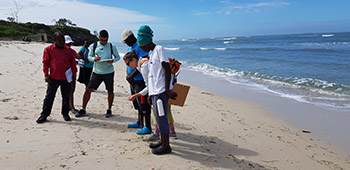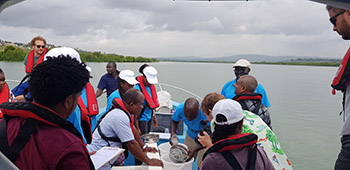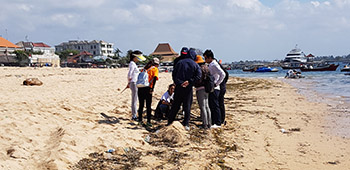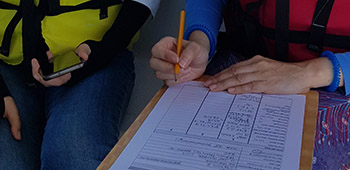About the design of the training course
The participants will be trained in the field to use the right methods to collect high quality data on plastic pollution. This data is necessary to support policy questions and to provide answers to plastic pollution issues.
About the relevance of the training
Developer and trainer of the training course Ansje Löhr: 'It is very important to collect good data worldwide about the extent of plastic pollution and to use the right methods to gather data. It's great as the Open University to contribute to capacity building worldwide in this way'. It is planned that the training will also be given in other parts of the world.
Kenya and Indonesia first to be addressed
The training was organised in Kenya in August 2019 together with WIOMSA - the Western Indian Ocean Marine Science Association and the Kenya Marine and Fisheries Research Institute. Representatives from nine WIOMSA countries participated in Kenya.
In September 2019 the training was given in Indonesia and organised together with the Coordinating Body on the Seas of East Asia (COBSEA), the Global Partnership on Marine Litter, the Global Programme of Action for the Protection of the Marine Environment from Land-based Activities and co-hosted by the Regional Capacity Center on Clean Seas (RC3S) and the Ministry of Environment and Forestry of Indonesia. In Indonesia, representatives from eight COBESA countries took part.
Trainers from seven countries were involved in providing the training based on new Guidelines for the Monitoring and Assessment of Plastic Litter in the Ocean.




